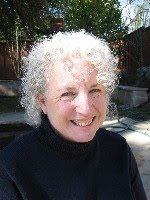 The intensive summer session at Teachers College has ended and I am back home trying to absorb it all. I come away with two essential ideas now deeply embedded in my own sense of mission. First; tools on the Internet will continue to be a ubiquitous part of some of our lives. If tools remain free which is the goal of Open Source software then more people will have access. We have a responsibility as educators to know what exists and how it is and can be used. Second; our students will come to us with an intuitive awareness of what exists and how it is used. Many will know way more about it than any of us do. We have so much information at our disposal and that will probably continue to be the case. Helping students and adults learn how to critically evaluate the information they find on the internet is essential to helping our society learn how to use the internet in ways that benefit us rather than debase us.
The intensive summer session at Teachers College has ended and I am back home trying to absorb it all. I come away with two essential ideas now deeply embedded in my own sense of mission. First; tools on the Internet will continue to be a ubiquitous part of some of our lives. If tools remain free which is the goal of Open Source software then more people will have access. We have a responsibility as educators to know what exists and how it is and can be used. Second; our students will come to us with an intuitive awareness of what exists and how it is used. Many will know way more about it than any of us do. We have so much information at our disposal and that will probably continue to be the case. Helping students and adults learn how to critically evaluate the information they find on the internet is essential to helping our society learn how to use the internet in ways that benefit us rather than debase us.Ironically, I sat in a face-to-face discussion group yesterday in church. At my church, we have a discussion following the sermon. The themes of the scripture readings yesterday had to do with the consequences of abusing power and using our gifts with a sense of humility. To recreate the path that got us talking about too much information on the Internet would take too long here and my point would be lost in the telling. People railed against the evils of too much information and too much freedom to select information. Everyone had a story of someone who shares information sent to them on the Internet that is blatantly wrong and yet people, even educated people, believe it because the shear volume makes it credible. Then, of course, there are the stories of the rise in polarizing groups that stir up fear and hate. These groups are not that big but the Internet allows them a long reach.
I am not an apologist for the Internet as an information source; yet, I think we need to step back and take a deep breath. Besides all the inaccurate information that is accessible, we also have access to solid information that many of us would not be able to get any other way. Wikipedia gets slammed a lot as an inaccurate source of information but Wikipedia is also an easy way to begin if you know nothing about a topic. Look at the sources listed and that gives anyone a place to begin research on the topic. We cannot use Wikipedia as a primary source in school writing but I think we can use Wikipedia to help us find a starting point if we don’t know where to begin.
The critical piece that is missing is being able to discern what is good information and what is not. Telling students is not enough. We need to practice with them over and over again how to evaluate any information they find, reading or listening, with a critical eye and ear - systematic, concrete, synchronous, repeated practice. Developing critical thinking skills is one of our responsibilities as educators; but it seems to have taken on greater importance because all the traditional information gatekeepers are disintegrating. We have greater freedom allowing us to make our own decisions about issues, topics, people, and ideas. We need the skills to be able to make those decisions well. What an exciting time to be alive!
